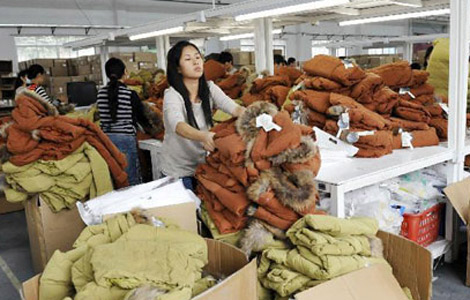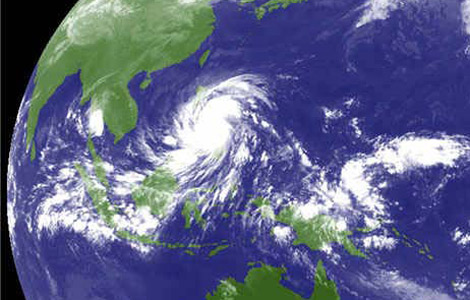Defining 'persistent organic' dangers
Updated: 2013-11-08 14:00
(China Daily)
|
|||||||||||
"There was a strange stillness. The birds, for example - where had they gone? It was a spring without voices."
The scenario that US biologist and conservationist Rachel Carson depicted in her 1962 book Silent Spring could become a reality if governments slacken efforts to eliminate the production and use of persistent organic pollutants, environmental experts warn.
There are a few natural sources of POPs but the substances are mostly the result of industrial processes.
Many are or were used as pesticides - the most notorious is DDT - while others are used to produce products such as solvents and pharmaceuticals.
Experts warn that POPs pose grave risks to the environment as well as the health of people, animals and all living things as they are resistant to environmental degradation through chemical, biological or photolytic processes.
Scientists have found that most POPs have a half-life of more than two months in water and at least half a year in soil and can travel through rivers or oceans without losing impact.
They are also found to accumulate in human and animal tissue as they move up the food chain.
A study in the Great Lakes in North America found that the POP content in plankton is 500 times the content in the lake water. The figure rises to 45,000 times in shrimp and 830,000 times in fish that eat shrimp.
That means the higher on the food chain, the greater the risk.
Examples include the polychlorinated biphenyl - or PCB - poisoning in Japan in 1968.
PCB contaminated rice oil was sold to poultry farmers for use as a feed supplement and to consumers for use in cooking. Some 1,700 people were poisoned and more than 30 were killed.
In 1979, an almost identical case occurred in Taiwan province.
lifusheng@chinadaily.com.cn
 |
| Signatures from different regions on display at the Ministry of Environmental Protection show the rising opposition to POPs. |
Hot Topics
Editor's Picks

|

|

|

|

|

|






